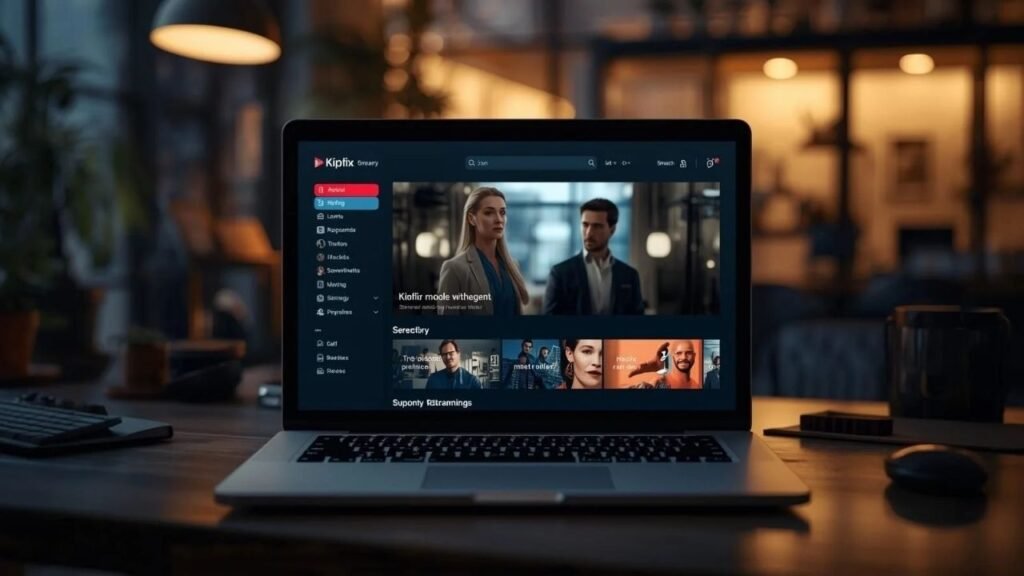Introduction
Peter Shamshiri is a modern figure whose name has become increasingly associated with the intersection of law, media, and cultural critique. Known for his sharp analysis, dry humor, and willingness to confront institutions of authority, he represents a new kind of public intellectual—one who uses podcasts and digital platforms rather than courtrooms or lecture halls to explore questions of justice, power, and truth.
Shamshiri stands out not only as a lawyer and commentator but also as a thinker who bridges the gap between complex legal reasoning and accessible public dialogue. Over the last few years, his rise as a prominent voice in legal media has signaled a shift in how society engages with law: not merely as a technical field, but as a cultural and moral force shaping everyday life.
This article explores the background, career, and ideas of Peter Shamshiri, tracing his journey from legal practice to independent media, and examining how his approach to law, politics, and public discourse has redefined what it means to be a lawyer in the age of podcasts and digital audiences.
Early Life and Education
Although detailed biographical information about Peter Shamshiri is limited, it is clear that he possesses a deep grounding in law and the humanities. His early education reflects a dual interest in analytical reasoning and creative expression—skills that would later define his professional voice.
From an early stage, Shamshiri displayed curiosity about how systems of power operate. His decision to pursue a career in law was motivated not by a desire for prestige, but by a fascination with how legal institutions shape society. Law, for him, represented both a career and a lens for understanding politics, ethics, and human behavior.
During his years in law school, Shamshiri developed a reputation for his critical thinking and ability to question conventional wisdom. He immersed himself in the study of constitutional law, administrative law, and legal philosophy, while also cultivating interests in literature and public policy.
His legal education provided more than technical knowledge—it offered the tools to see law as a living system, one influenced by history, ideology, and human bias. These insights would later become central to his commentary work.
Professional Career in Law
After completing his legal studies, Peter Shamshiri entered the legal profession, where he gained experience across multiple domains of practice. His early career involved both private-sector work and public-interest law, giving him firsthand exposure to the complexities and contradictions of modern legal systems.
He spent time working as an in-house counsel, where he handled issues of regulatory compliance, contracts, and corporate governance. Yet, even during this phase, he remained aware of how the law often operates as a reflection of broader societal power structures.
It was this recognition—the idea that law is never neutral—that began to define his public perspective. For Shamshiri, the law is not simply a set of rules; it is a stage upon which political, moral, and cultural struggles unfold.
His experience in legal practice sharpened his understanding of the tension between the law’s stated ideals—fairness, justice, equality—and its practical outcomes. This tension became a recurring theme in his later commentary.
Transition into Media and Public Commentary
Peter Shamshiri’s shift from traditional legal practice into media marked a decisive turning point in his career. Recognizing the growing power of podcasts and digital journalism, he began to use these platforms to translate legal ideas for a wider audience.
Through podcasting, he found a way to engage people who might never read a judicial opinion or legal brief but who are deeply affected by the decisions those opinions represent. His communication style—direct, witty, and incisive—helped demystify topics that many view as inaccessible.
The hallmark of Shamshiri’s media work is his ability to combine rigorous legal analysis with cultural critique. He treats law not as an abstract discipline, but as part of a larger ecosystem of ideas, ideologies, and narratives that shape how people live and think.
Core Philosophies and Themes
At the heart of Peter Shamshiri’s work lies a distinctive intellectual philosophy. Several key principles define his approach:
1. Law as Politics
Shamshiri consistently argues that law cannot be separated from politics. Judicial decisions, he insists, are not purely objective acts of interpretation—they are political statements reflecting the values and priorities of those in power.
By framing law in this way, he challenges the myth of judicial neutrality and exposes the ideological undercurrents that influence legal reasoning. His commentary often highlights how courts can be instruments of both progress and repression.
2. Accessibility of Legal Discourse
One of Shamshiri’s defining missions is making the law understandable to non-lawyers. He believes that when ordinary citizens are excluded from legal conversations, democracy itself suffers. His media work invites the public into spaces traditionally dominated by experts and elites.
3. Humor as a Tool of Critique
Unlike many legal commentators, Shamshiri embraces humor—not as a distraction, but as a form of critique. By using irony and satire, he disarms the seriousness of legal rhetoric and makes his points more memorable. His tone allows him to address grave subjects without losing audience engagement.
4. Cultural Power of Ideas
In addition to his legal commentary, Shamshiri explores how cultural products—books, films, and popular media—shape public understanding of truth and authority. He treats culture itself as a kind of informal “court,” where values and ideologies are debated and reinforced.
5. Intellectual Integrity
Above all, Shamshiri values honesty of thought. He resists both partisan conformity and intellectual laziness. His willingness to interrogate even his own assumptions reflects a broader commitment to open, critical dialogue.
Style and Communication
Peter Shamshiri’s communication style has played a significant role in his success. He combines clarity with depth, ensuring that his audience learns without feeling overwhelmed. His tone blends the confidence of a lawyer with the curiosity of a journalist.
When discussing legal topics, he avoids unnecessary jargon, focusing instead on storytelling. He often begins with a concrete case or event, then unpacks the historical and philosophical forces behind it. This narrative approach makes abstract principles tangible.
He is also known for his sharp timing and dry wit. Rather than presenting law as distant or austere, he turns it into a living subject full of conflict and drama.
Influence on Legal Discourse
Shamshiri’s growing influence reflects a broader transformation in how people consume legal information. Traditional law reviews and academic journals still exist, but many now rely on digital voices like his to reach new audiences.
Through his public commentary, he has helped redefine what legal education can look like outside of classrooms. Listeners who once found the Supreme Court opaque or intimidating now engage with its rulings critically and confidently.
He has also influenced a generation of young lawyers and law students, many of whom cite his work as inspiration for entering legal media or reform advocacy. His ability to blend expertise with accessibility sets a standard for how professionals can use communication platforms responsibly.
Challenges and Criticisms
Like any outspoken commentator, Peter Shamshiri has faced criticism. Some detractors argue that his tone is too irreverent for legal discussion, while others accuse him of bias or partisanship.
However, Shamshiri’s response to such critiques underscores his core belief: that honesty and conviction matter more than the illusion of neutrality. In his view, pretending that law is apolitical does more harm than good.
Another challenge he has faced is balancing professional reputation with independent expression. Speaking openly about the law—especially in ways that question established institutions—can invite controversy. Yet this tension only reinforces his commitment to transparency and public engagement.
Broader Cultural Role
Peter Shamshiri’s work extends beyond law and into cultural analysis. He approaches society as a complex network of stories—legal, political, and literary—that interact to shape our understanding of justice.
He often critiques how popular media distorts legal and political realities, portraying power as inevitable or meritocratic. By dissecting these narratives, he encourages audiences to see how culture itself legitimizes or challenges authority.
In this sense, Shamshiri operates not only as a commentator but as a cultural theorist. His insights reveal how everyday language, entertainment, and even self-help literature can subtly influence political thought.
The Intersection of Law and Technology
In recent years, Shamshiri has also turned his attention to the intersection of law and technology—a topic of increasing importance in the digital age.
He has explored questions such as:
- How do algorithms affect justice and fairness?
- What does privacy mean in an era of surveillance capitalism?
- Can legal systems keep pace with technological innovation?
His commentary in this area emphasizes that the digital world is not separate from the legal one—it is governed by the same forces of power and interpretation. Understanding these connections, he argues, is essential for the future of both law and democracy.
Personal Outlook and Values
At the core of Peter Shamshiri’s worldview lies a belief in the power of knowledge. He sees education—especially public education about law—as a tool of liberation.
His work is driven by the conviction that ordinary people deserve to understand the systems that govern them. This belief makes his media presence not just informative but also democratic in spirit.
He has often spoken about the importance of skepticism, empathy, and humor as intellectual virtues. For him, these qualities allow people to navigate a world where truth is contested and institutions are under strain.
Legacy and Future Influence
Although Peter Shamshiri’s career is still evolving, his impact on modern media and legal commentary is already evident. He has demonstrated that serious analysis and mass appeal need not be mutually exclusive—that rigorous ideas can thrive in formats once reserved for entertainment.
In the coming years, his influence is likely to expand through writing, teaching, or new forms of digital media. As society continues to grapple with questions of justice, misinformation, and institutional trust, voices like his will be increasingly valuable.
His legacy may ultimately rest not only in his critiques of law and culture but in his example: a model of how professionals can bring expertise to the public without condescension or detachment.
Conclusion
Peter Shamshiri represents a new generation of thinkers who move fluidly between law, journalism, and culture. His work exemplifies how intellectual rigor and accessibility can coexist—how serious ideas can reach wide audiences without losing substance.
Through his clear, often provocative commentary, he challenges listeners and readers to see law not as an abstract system but as a living reflection of society’s values and conflicts. His humor disarms; his reasoning persuades.
Ultimately, Shamshiri’s greatest contribution may be his insistence that understanding the law is everyone’s right, not just a privilege for the educated elite. By democratizing legal discourse, he invites people to think critically, laugh intelligently, and participate more fully in the civic life of their communities.






